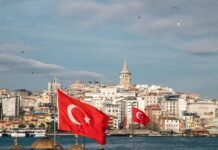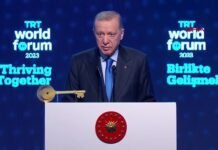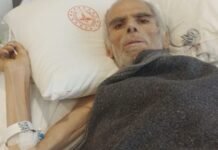
In a breach of European Union (EU) and international laws, Greek government appears to have adopted a policy of push-backs of Turks seeking asylum from repressive regime of President Recep Tayyip Erdoğan.
The new practice has been put into action as of mid-May and involved Greek security forces as well as unidentified and masked gunmen who intercept people near Turkish border and send them to other side by force, violence and threats.
Stockholm Center for Freedom (SCF) has received credible information from multiple sources that indicated at least five cases of refoulement which may suggest a systematic and deliberate policy on the part of Greece to send back asylum seekers of Turkish origin back to Turkey to face wrongful imprisonment, torture and ill-treatment.
In all five cases, similar rules of engagement have been applied. First, the Greek police intercepted asylum-seeking Turks who entered to Greece illegally to escape the campaign of persecution against critics and opponents in Turkey. They were taken to a police station for processing and later turned over to a team of five to six unidentified, armed men who was wearing a ski mask. Instead of taking them to a refugee camp, they were forcibly and violently removed to the Turkish side of the border to get picked up by Turkish gendarmerie shortly.
The most recent incident took place on June 2, 2017 when a group of ten Turkish people who entered into Greece were intercepted by Greek police in an area near the town of Didymóteicho in northeastern Greece. Even though they declared to the police that they seek an asylum in Greece, the group was placed in a police vehicle with a license plate no. EA2790 under the guard of armed and masked men in military fatigues. They were taken to the river bank and forced to get on the boat to cross Maritza River to land on Turkish side. Greek police seized their mobile phones and passports and did not return them.
The group — composed of non-commissioned officer Halil Kumcu, Assistant Professor Fatih İlkaya, teachers Yılmaz Erdoğan, Fethullah Çatal and Mustafa Can, his wife Hatice Can and their four children — were detained by Turkish gendarmerie within two hours. Kumcu, Can and Çatal were later formally arrested in Turkey, while the cases of İlkkaya and Erdoğan is still pending. Hatice Can and the four children were released under judicial probation.
In another case on May 24, 2017, the prominent Turkish journalist Murat Çapan, who had been sentenced to 22,5 years for two news stories that are critical of Erdoğan government in liberal Nokta magazine where he worked as the managing editor, crossed into Greece illegally to seek asylum and escape the wrongful prison sentence that was handed against him on May 22, 2017. Çapan and his two friends, named Ali Erkan Ataç and Süleyman Sivri, were intercepted by Greek police at the town of Didymóteicho. They were taken to a police station where they declared their intention to seek asylum in Greece.
In the police station, there was also a Turkish man identified as Mithat Çelikkafa along with his wife and three children. One of the children is known to have a serious heart problem. They were also seeking asylum in Greece. An hour later, Çapan, his friends as well the the family they met at the police station were told that authorities will take them to the Office of the United Nations High Commissioner for Refugees (UNHCR) for registration and further processing. They were put on a white van.
The vehicle stopped on the road after a while and all Turkish refugees were handed over a group of armed man in military fatigues. They were forced to board on a boat to cross the river bound for Turkish territory near the village of Serem in the town of Meriç. Here they were detained by Turkish security forces. All five adults were arrested and currently languish behind bars. Çapan was jailed in Edirne Prison, Ataç in Ankara Sincan Prison, Sivri is in Uşak Prison and Çelikkafa couple are in Aksaray Prison.
The cases attracted the attention of human rights advocacy groups with the International Federation for Human Rights (FIDH) stating that “the refoulement to the Turkish authorities of people that are in danger of severe violations of their most basic human rights, if it has indeed taken place, is a blatant violation of international law and it is clear it was not the initiative of the local police force.”
FIDH has also demanded an immediate investigation into the incident and concrete answers from the relevant ministers concerning the policy that is in effect at the borders. Also it said the Human League for Human Rights has already sent an official notice to the United Nations High Commissioner for Refugees demanding an investigation into the incident.
The Stockholm Center for Freedom (SCF) has documented that 264 journalists are now in jails as of May 27, most in pre-trial detention languishing in notorious Turkish prisons without even a conviction. Of those in Turkish prisons, 241 are arrested pending trial, only 23 journalists remain convicted and serving time in Turkish prisons. An outstanding detention warrants remain for 105 journalists who live in exile or remain at large in Turkey.
On December 2016, the United Nations Special Rapporteur on Torture Nils Melzer talked about an environment conducive to torture following a failed coup in Turkey on July 15, 2016.
He noted that Turkey is not following up on investigating torture allegations. Melzer’s visit, the first by a UN torture expert to Turkey since 1998, came a month after US-based watchdog Human Rights Watch (HRW) accused Turkish police of torturing detainees. On Oct. 27, in a 43-page report titled “A Blank Check: Turkey’s Post-Coup Suspension of Safeguards Against Torture,” HRW documented 13 specific abuse incidents concerning Turkey’s post-coup detainees. The alleged abuse cases ranged from the use of stress positions and sleep deprivation to severe beatings, sexual abuse and the threat of rape.
Human rights group Amnesty International reported on July 24 that it had received credible evidence of detainees in Turkey being subjected to beatings and torture, including rape, since a failed coup on July 15.
After Turkey survived a botched coup attempt, Erdoğan immediately pinned the blame on the Gülen movement while the coup attempt was still underway. Fethullah Gülen, who inspired the movement, strongly denied having any role in the failed coup and Turkish government has failed to present any direct evidence implicating Gülen or his movement in the coup attempt.
Turkish government also balked at Gülen’s repeated calls for establishing an international independent investigation into the coup bid. Instead, Erdoğan who called the coup attempt “a gift from God”, set out for a mass persecution, jailing tens of thousands of people and purging more from government jobs in an unprecedented witch-hunt campaign.
154,694 individuals have been faced a legal action and 50,136 have been jailed due to alleged Gülen links since the failed coup attempt, according to a report by the state-run Anadolu news agency on May 28, 2017.
June 4, 2017














